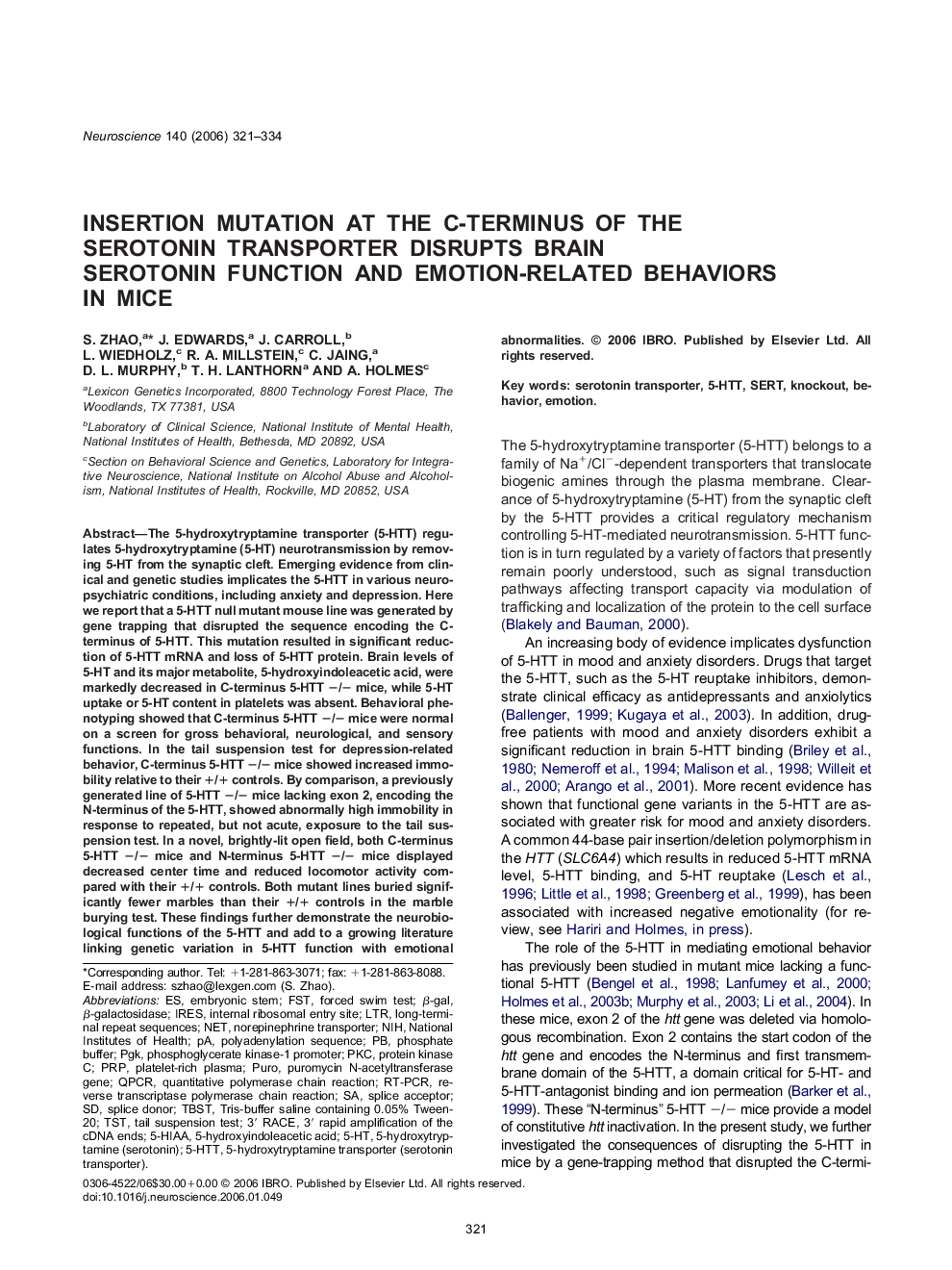| Article ID | Journal | Published Year | Pages | File Type |
|---|---|---|---|---|
| 4342827 | Neuroscience | 2006 | 14 Pages |
The 5-hydroxytryptamine transporter (5-HTT) regulates 5-hydroxytryptamine (5-HT) neurotransmission by removing 5-HT from the synaptic cleft. Emerging evidence from clinical and genetic studies implicates the 5-HTT in various neuropsychiatric conditions, including anxiety and depression. Here we report that a 5-HTT null mutant mouse line was generated by gene trapping that disrupted the sequence encoding the C-terminus of 5-HTT. This mutation resulted in significant reduction of 5-HTT mRNA and loss of 5-HTT protein. Brain levels of 5-HT and its major metabolite, 5-hydroxyindoleacetic acid, were markedly decreased in C-terminus 5-HTT −/− mice, while 5-HT uptake or 5-HT content in platelets was absent. Behavioral phenotyping showed that C-terminus 5-HTT −/− mice were normal on a screen for gross behavioral, neurological, and sensory functions. In the tail suspension test for depression-related behavior, C-terminus 5-HTT −/− mice showed increased immobility relative to their +/+ controls. By comparison, a previously generated line of 5-HTT −/− mice lacking exon 2, encoding the N-terminus of the 5-HTT, showed abnormally high immobility in response to repeated, but not acute, exposure to the tail suspension test. In a novel, brightly-lit open field, both C-terminus 5-HTT −/− mice and N-terminus 5-HTT −/− mice displayed decreased center time and reduced locomotor activity compared with their +/+ controls. Both mutant lines buried significantly fewer marbles than their +/+ controls in the marble burying test. These findings further demonstrate the neurobiological functions of the 5-HTT and add to a growing literature linking genetic variation in 5-HTT function with emotional abnormalities.
